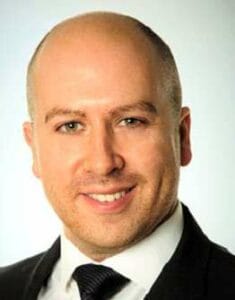
For any business, maximising profits is a key focus, however many only look at short-term boosts, instead of considering how the company’s profits can be invested to create a long-term return.
There are many opportunities open to businesses that choose to invest profits, one of these is to invest in a pension via the company. Pension contributions are one of the few remaining tax deductions for limited liability companies. Putting money into retirement is not only a saving for retirement, but also a tax-effective way to use the profits from your business.
A limited company director can contribute to their pension as a business employer and as an individual. This doubles the opportunity for pension tax relief as it can be claimed on both.
Contributing to the business pension as a limited company, rather than an individual, is essentially more tax-efficient and will reduce overall corporate tax liability and so reduce a company’s taxable profits and subsequently the corporation tax liability.
What steps are needed for limited company directors to contribute to pensions via the company?
- Pension contributions can be made from a company’s pre-tax earnings, and since employer contributions are classified as “allowable expenses”, the company will receive a tax break, allowing savings of up to 25% on corporate tax.
- For a company director to make pension contributions an allowable business expense, HMRC must deem the contribution as exclusively and wholly for the employer’s trade or profession.
HMRC will want to establish that the level of total numeration in the business, i.e. wages, dividends, bonuses, benefits, pension contributions are all commercially viable for the work performed. In general, if the individual is the sole director of the business and the main revenue generator, the contribution is unlikely to fail this assessment, but it is wise to consult with a qualified financial advisor beforehand.
Another way for a company to boost business profits is by using your pension fund to invest in commercial property. This type of investment for business owners can prove to be highly tax efficient.
So how does this work in practice?
There are several ways to buy commercial property as an investment in retirement.
- A business owner can use their retirement fund to purchase property.
- Authorised investments include commercial premises, factories, shops, offices, and more. Residential property is not allowed.
- Business owners or family members can pool their pension funds to purchase a property meaning that each pension fund owns a percentage of assets and a percentage of rental income.
- Assets are purchased by retirement trustees and the income, typically in the form of monthly or quarterly rent, is received into a retirement bank account.
- If a loan has been used to support the purchase of a property, repayment of the loan is usually covered by the amount of rent received.
- Up to 50% of the value of the retirement fund can be borrowed (prior to property purchase) if required.
Investing in life insurance through the company is another way to ensure long-term protection and return in profit. A company director can take out a life insurance policy which would offer protection to their family in the case of untimely death and can be purchased using the company’s pre-tax earnings but a business itself can benefit from investing in keyman insurance.
What is keyman life insurance?
Keyman or key person insurance is essentially a type of life insurance that financially protects your business by paying a cash lump sum if a key member of staff dies. The key person in question could be anyone who is essential to the everyday running of the company. This is usually the business owner or founder, or it could also be an employee the business cannot function without.
Key Person Protection comes in two forms:
- Life Insurance only
- Life & Critical Illness Cover
How does keyman insurance benefit and boost a business profits?
This type of cover basically protects a business from the loss of a key employee due to death or critical illness. A cash lump sum is paid into the business, so the company is able to cope with any issues due to the loss of the key person.
There are a few examples of ways this can help a business:
- Hiring replacement staff
- Providing a buffer against loss of profits
- Repay outstanding loans
- Make up for difficulties securing funding
- Provide general financial support to the business
Keyman Insurance certainly cannot replace the business owner, director, or star staff member but it can help support a company financially should something happen.
Every business should aim to be as tax efficient as possible. Taking these simple steps can essentially reduce the business tax bills, expand a company’s margins, strengthen the business model, and improve cash flow, all of which can make for a brighter retirement and offer long-term protection for business owners and their families.
About Jonathan Sidlin, Financial Planner and Managing Director of HSC Financial Advisers

Jonathan Sidlin is a standout financial planner whose proven track record helps his clients build wealth in order to achieve long term financial success. Jonathan is not your ordinary Financial Adviser. He believes every person should be educated about personal finance from an early age to ensure they are presented with the best opportunities in life. It is this unique combination of education and strategy that helps his clients increase their personal wealth and ensure their protection needs are met. Jonathan provides his clients with the confidence to follow a long-term financial plan, guiding them at regular intervals with the aim of becoming financially secure.
Jonathan is a Chartered Financial Adviser who graduated from the London Institute of Banking and Finance. His expertise covers most areas of the Financial Planning process, including Pensions and Investments, Tax Efficient Products and Estate Planning Solutions.With an increased focus on sustainability, Jonathan is working to bring more ESG investment options to his clients.
Jonathan’s clients come from all walks of life and include all ages. Whether it’s a first-time buyer looking to purchase a home, individuals and business owners looking to grow their wealth, or a retired person wishing to draw an income and/or provide for the next generation, Jonathan has strategies for each unique situation.
Jonathan believes that financial success is built around a basic understanding of money and the choices individuals make when it comes to their finances. Jonathan works with his clients on a personalised basis taking them on a journey to create a tailored financial plan.
Jonathan offers uncomplicated, authentic advice and prides himself on being down to earth and jargon free. His goal is to make financial wellbeing accessible to all and enable more people to achieve long-term financial freedom.
Website: www.hscfinancial.co.uk


